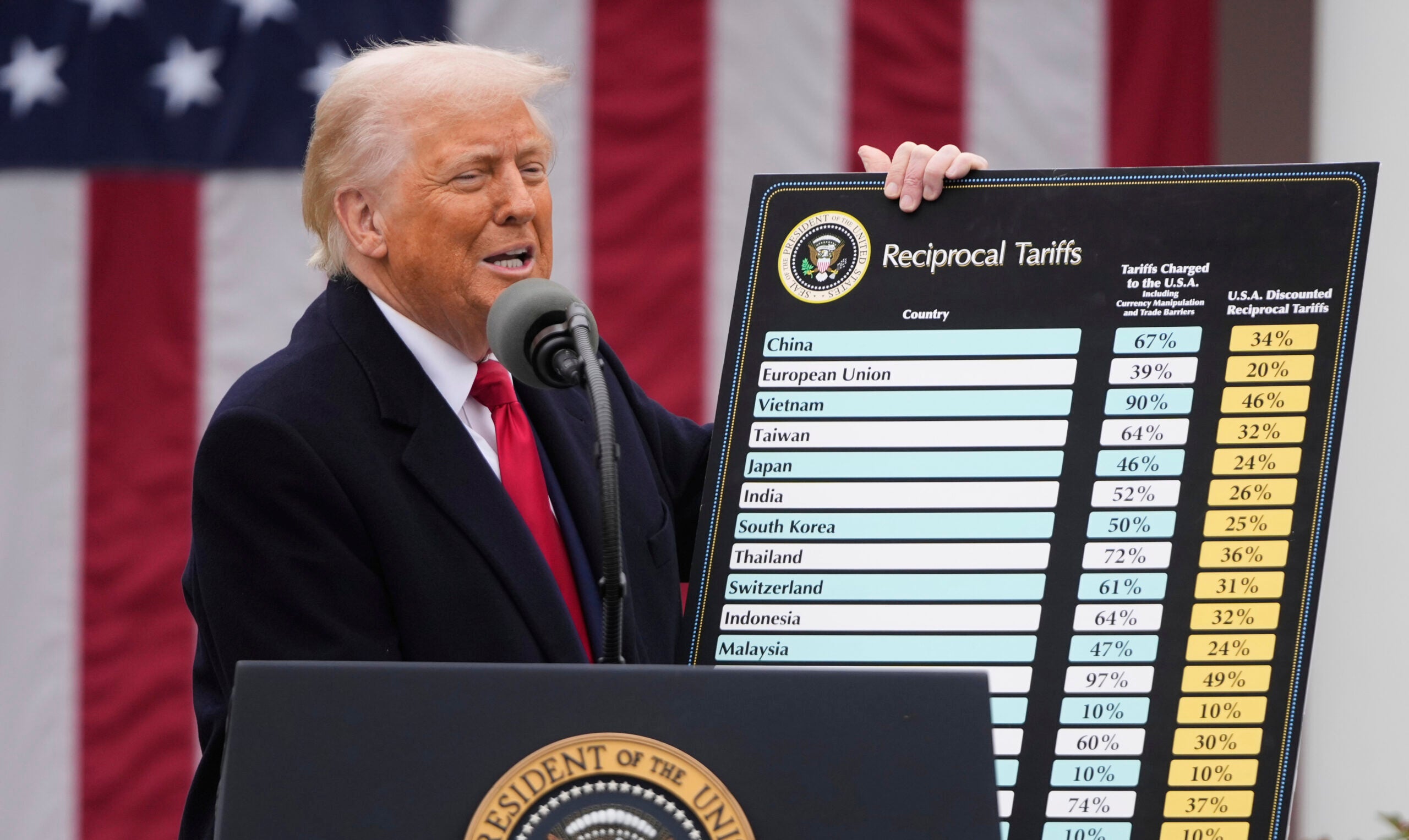Wisconsin’s baking industry is anticipating how ongoing policy changes by the new Trump administration could affect borrowers in the state.
Rose Oswald Poels is President and CEO of the Wisconsin Bankers Association. She says that at a conference of banking executives held in early February, the potential for regulatory changes under the new administration was top of mind.
“There’s a lot of interest to see if we can get the regulatory pendulum that swung a little too far to the extreme back to center and have more reasonable regulation and oversight of the industry,” Poels told WPR’s “Wisconsin Today.”
Stay informed on the latest news
Sign up for WPR’s email newsletter.
Poels pointed to Section 1071, a specific rule from the Consumer Financial Protection Bureau, or CFPB, that she says “is a huge burden for the banking industry.”
“It would have required small business owners and farmers to give over 81 data points every time they wanted to borrow money … then there’s a huge privacy question about what happens to the data,” Poels said.
Just days after the summit, however, the Trump administration ordered the CFPB to cease the majority of its operations.
Poels discussed her industry’s view on the CFPB’s work and what a “new normal” in mortgage rates means for banks and borrowers.
The following was edited for clarity and brevity.
Kate Archer Kent: The Consumer Financial Protection Bureau is the country’s consumer protection watchdog. It came to being after the 2008 financial crisis to ensure that mortgage companies follow the rules. Should Wisconsin banks do something to help protect or reassure customers?
Rose Oswald Poels: Wisconsin banks have always done that. I think they’re very trusted sources of advice and protection of their money and of their data. They spend millions of dollars every year in making sure consumers are protected from any kind of cyber threat, including point of sale data breaches on people’s debit or credit cards, check fraud and other scams.
The Consumer Financial Protection Bureau is an agency that, as you mentioned, was created because of what happened, primarily with mortgage bankers and brokers which are not as regulated as the banking industry is. We would prefer the CFPB to focus more on the non-regulated lenders and others that are out in the financial institution space rather than create rules like [Section 1071] that are going after a problem that doesn’t exist.
KAK: The Trump administration says it is trying to curtail the work of federal agencies that they feel are excessive. Do you think the work of the Consumer Financial Protection Bureau is excessive?
ROP: Yes. I think if it stayed to the mission in its original form, to focus on non-regulated industries like some in the mortgage industry, the banking industry would not have any concerns over that. But it was given a lot of broad authority to write rules. The legal work behind writing rules was transferred from the Federal Reserve over to the CFPB when it was created, which gave it a lot of power to be able to put extreme rules like Section 1071 into place against the banking industry. So I think there we’ve seen mission creep, and again, something that we very much would like to see rolled back.
KAK: The Chicago Federal Reserve Bank president recently spoke on “Marketplace” about needing to be “more careful and more prudent” about lowering interest rates at this moment. How are Wisconsin bankers approaching the uncertainties in our economy?
ROP: We work most closely with our customers, particularly borrowers, and especially new, first time home borrowers. I think we’re living in more of a new normal time when it comes to mortgage rates. And that’s really why I’ve always encouraged consumers to go in and talk to your banker about what your needs are and get pre-qualified before you go house hunting. Because supply is still low, prices in Wisconsin are still rather high in a lot of more urban markets across the state. I think it’s important to get a good understanding of what financially makes sense for you before you start engaging with a realtor and go out to buy your home. It would be prudent to talk with a lender before you engage in that process.







